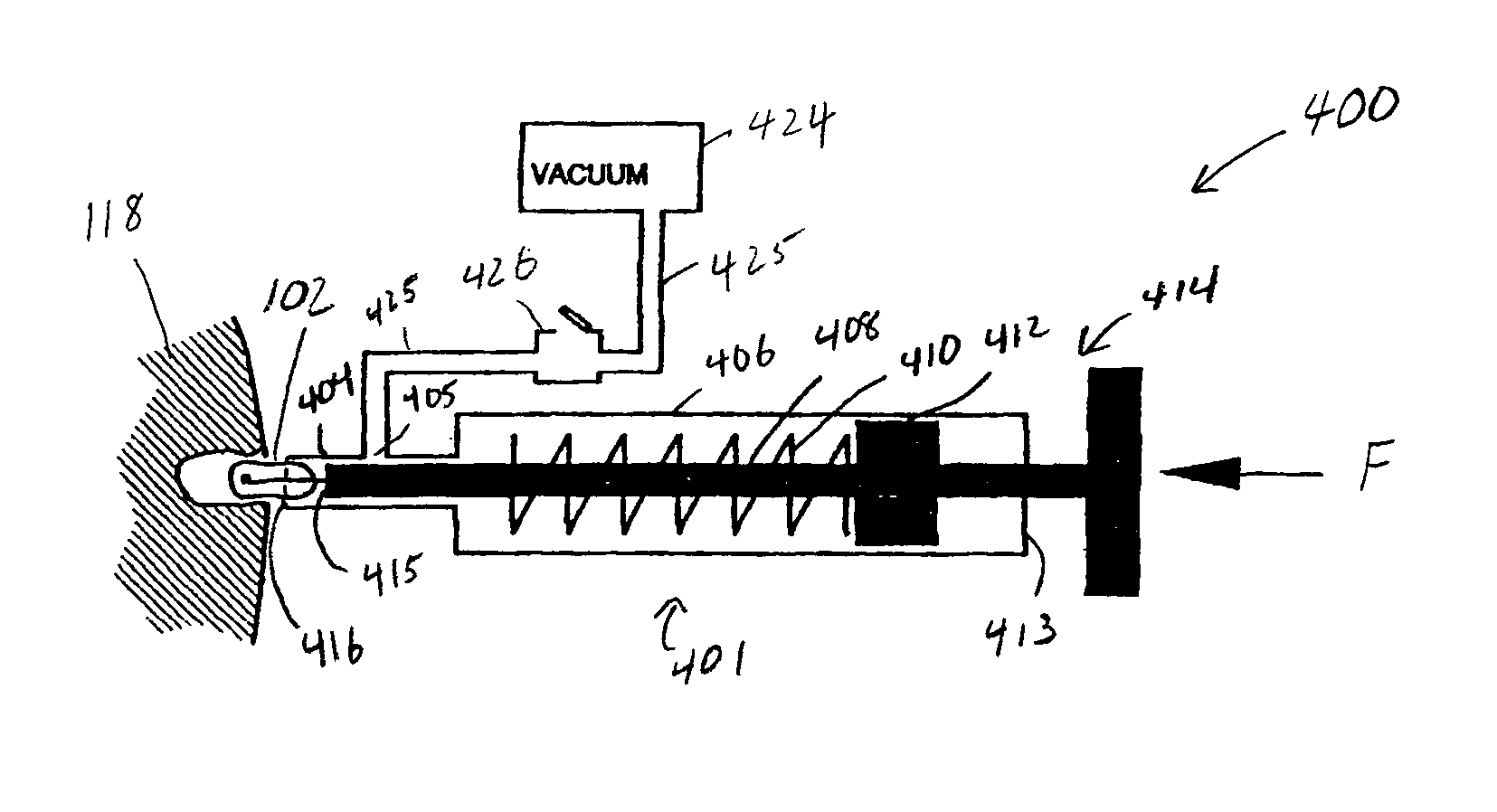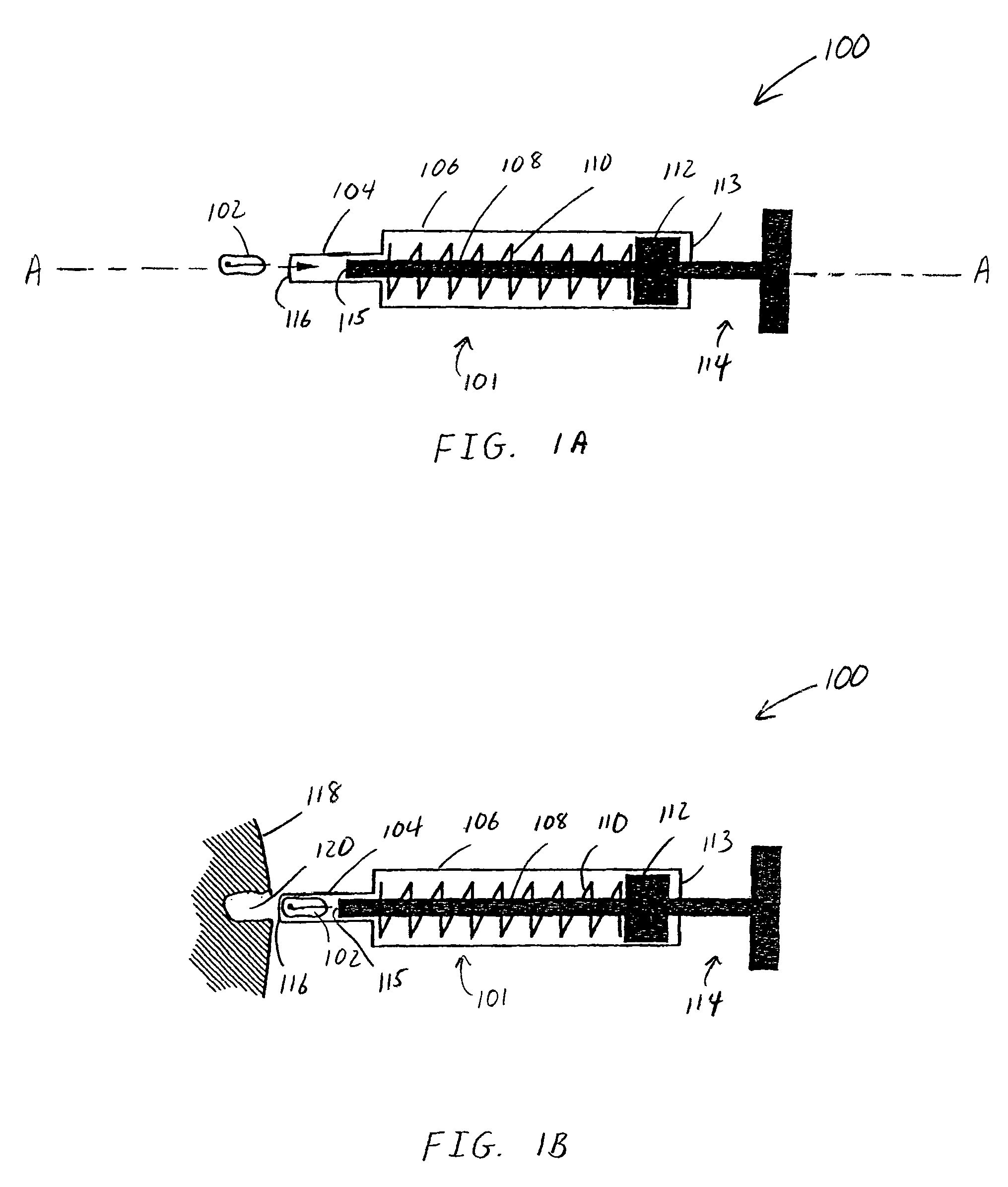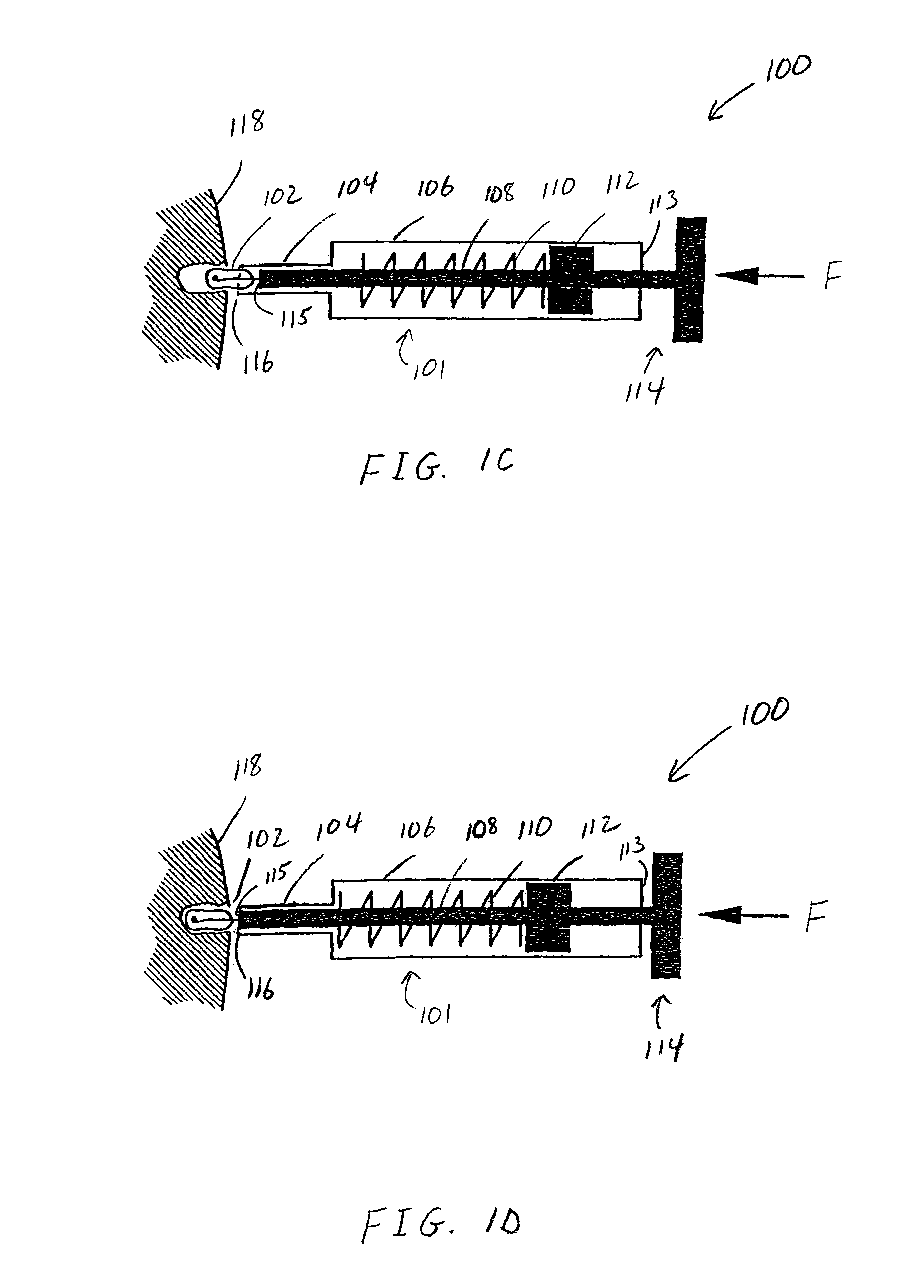Method and apparatus for transplanting a hair graft
a technology for hair grafts and apparatuses, applied in the field of apparatus and methods for transplanting hair grafts, can solve the problems of very delicate and sensitive controls of instruments, the transplant process,
- Summary
- Abstract
- Description
- Claims
- Application Information
AI Technical Summary
Benefits of technology
Problems solved by technology
Method used
Image
Examples
Embodiment Construction
[0028]In conventional hair graft transplanting instruments, a needle is in part or in whole inserted through the skin or the skin edge of a wound to a depth approximately equal to the length of a human hair follicular unit. These instruments guide the hair to its final resting position through a mechanical process where a part of the transplant instrument (e.g., a finger projection or a needle type housing) holds the graft as that part of the instrument is inserted to its ideal depth before the graft is expelled from the instrument. The part of the instrument that goes below the skin edge adds bulk to the space where the hair graft is being placed. The mechanical action of the instrument as it implants a graft places pressure on the skin, whether or not it is cutting though the skin, and also increases the volume and pressure within the space intended only for the hair graft.
[0029]The changes in the wound environment at or below the point where the graft is to be inserted is dynamic...
PUM
 Login to View More
Login to View More Abstract
Description
Claims
Application Information
 Login to View More
Login to View More - R&D
- Intellectual Property
- Life Sciences
- Materials
- Tech Scout
- Unparalleled Data Quality
- Higher Quality Content
- 60% Fewer Hallucinations
Browse by: Latest US Patents, China's latest patents, Technical Efficacy Thesaurus, Application Domain, Technology Topic, Popular Technical Reports.
© 2025 PatSnap. All rights reserved.Legal|Privacy policy|Modern Slavery Act Transparency Statement|Sitemap|About US| Contact US: help@patsnap.com



